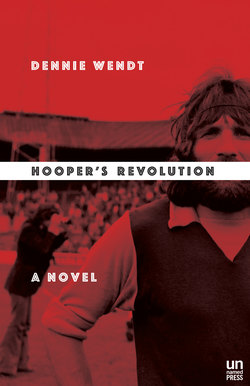Читать книгу Hooper's Revolution - Dennie Wendt - Страница 16
На сайте Литреса книга снята с продажи.
ОглавлениеEIGHT
One of the Russians had seen Brazil play the USSR in the 1958 World Cup and had been captivated. Captivated by all of them, by all of the Brazilians, but by one of them in particular.
The Pearl was only a teenager then, not yet the king of football, and he might not have been the best player on his team that day, but that Russian, then only ten years old, in his cramped Moscow apartment, had seen something in that young player—the way he had moved, suddenly yet gracefully, easily yet always effectively. The Soviets, who had seemed almost invincible in their previous two matches—a draw and a win in which they conceded no goals—now seemed too big, too strong, too stiff against the Brazilians and against the smallest amongst them. The Russian, Lev, loved football, and though he shared the name of a famous Russian goalkeeper, he found that he loved the attacking, Brazilian version more than he loved the Communist Soviet version that didn’t just lack poetry, it discouraged it.
The Russian had watched the 1962 World Cup, hoping for more samba magic, but opponents hacked the Brazilians to bits that year. The Brazilians won the Cup, but only by surviving it. The Russian had gotten wrapped up in the dramatic ’66 Cup in which the USSR advanced to the semifinals—but then the summer of 1970 happened.
The Kremlin could stifle its own rebels and iconoclasts, but it couldn’t keep the planet’s footballing championship from its people, and that meant that everyone got to see that the game could be as otherworldly and glamorous as anything else. For a nation deprived of the Summer of Love, those sixteen teams gamboling in the Mexican sun was its Woodstock, a bohemian discarding of decades of soccer science and custom. For that Russian, now a twenty-two-year-old named Lev, who had proven himself the best marksman in his military district during his compulsory service, it was the solidification of a worldview, a pilgrimage brought to him as if he’d ordered it at a restaurant. Lev hardly even thought of what he was watching as football at all: he experienced it as if it were a religion and he a recruit. The Brazilians seemed to be winking at the world, inviting everyone who understood what they were doing to come away with them to some distant island and create a new culture. Lev never doubted his own Russianness, never wavered in his patriotism, but he wondered why the nation that gave the world its best novels and ballets and architecture couldn’t bring its abundant imagination to football. He wondered how the Soviet Union was ever going to spread its ideology to an eager planet if it couldn’t show its superiority through the planet’s favorite game.
When Lev was eleven, he and the boys from the neighborhood played football after school on the hard-packed dirt in between their apartment blocks. It had never crossed his mind to wonder where the two little rusted goals had come from, or whose ball it was that they used. The goals were just always there, leaned up against one of the buildings, and the ball—they had only ever used one, bouncy, rubber, a formerly white brown and getting browner—just appeared day in and day out, like a stray dog.
One year he saved a few rubles to buy a new ball for a friend’s birthday. He bought the cheapest ball he could find, nothing special, but his friend was a gifted, clever player, the most Brazilian amongst them, and Lev had developed the idea that he, more than any of the other players, deserved his own ball. Lev never told the boy why he had bought him a football, but Lev had bought the boy a football because of what Lev had seen in 1958.
When Lev’s parents found out that he had bought the ball, they were confused. Lev could tell that they were confused in an unhappy way:
“Why did you buy the ball?” Lev’s father said at first.
“It’s his birthday,” Lev said. “And he likes football.”
Lev’s mother said, “Where does he play football? And when?”
Lev said, “Where we all play. Between the buildings. After school.”
Lev’s parents had looked at each other then, across the table, concerned. Now Lev understood the look. “It is a team game, is it not?” said Lev’s father. “A collective game. How many footballs do you need? You need one. Now, thanks to you, you have two. And one is his. What good is that? To you, to him?”
Lev’s mother said, “This will be strange for him. Now he is not normal. He has a ball now, Lev. Not you. Or any of the other boys.”
Still, Lev gave the boy his ball. The boy kept it as his own, and for a time, Lev never saw it. The old ball grew slicker and browner with time, until one day it bounced on a piece of broken glass and popped. The boys stared at its shriveling carcass for a few moments, wondering if and when they’d ever play again, until Lev’s friend sauntered over to his school bag and produced his ball, a nearly new beauty, which he rolled out amongst the group, and the game began again, and the ball was no longer, and never would again be, Lev’s friend’s ball. He didn’t even take it home with him that day. He just set it next to the building with the ugly little misshapen goals, and that was that.
